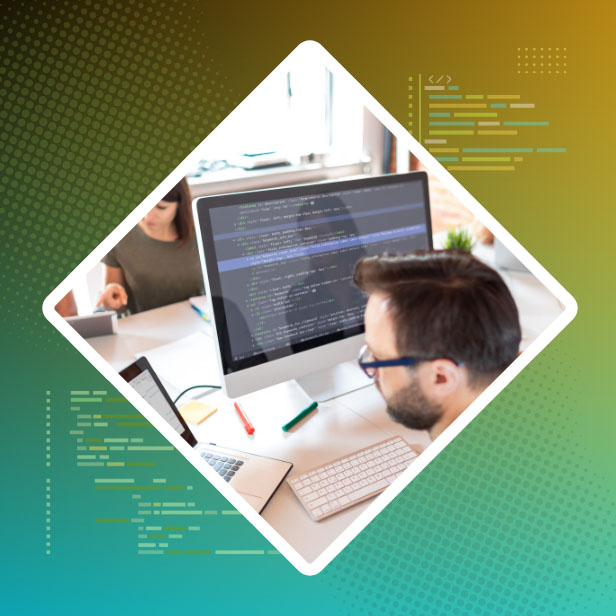Artificial Intelligence, zBlog
AI vs Automation: How to Decide Which One Fits Your Strategy — A Detailed Comprehensive Guide
trantorindia | Updated: September 8, 2025
In the evolving digital era, understanding the difference between AI vs Automation is key for businesses aiming to innovate and streamline. While both concepts relate to enhancing efficiency through technology, their applications, scope, and impact diverge significantly. Choosing the right approach involves a clear grasp of their unique strengths and limitations.
This extensive guide will explore AI vs Automation in-depth, focusing on definitions, real-world applications, benefits, challenges, latest trends, and practical decision-making frameworks. Using AI vs Automation as the cornerstone keyword throughout, along with related terms like intelligent automation, robotic process automation, machine learning, intelligent workflows, and digital transformation, ensures SEO optimization targeting the USA market for 2025–2026.
Understanding AI vs Automation: Clear Definitions
Artificial Intelligence (AI) refers to computer systems designed to perform tasks normally requiring human intelligence. These tasks include problem-solving, reasoning, natural language understanding, speech recognition, and image processing. AI is characterized by its ability to learn from data, adapt to changing inputs, and make decisions under uncertainty.
In contrast, Automation pertains to using technology for executing predefined, repetitive tasks without human intervention. Traditional automation operates using fixed rules and workflows, such as scripting or robotic process automation (RPA), focused on efficiency gains and error reductions in routine operations.
AI vs Automation can be summarized as:
The Spectrum of AI and Automation Technologies
- Robotic Process Automation (RPA): Software robots automating structured, repetitive tasks. RPA is automation without intelligence.
- Intelligent Automation (IA): Combines AI with automation tools, enabling robot decision-making based on data insights.
- Machine Learning (ML): AI subset that enables systems to learn from data patterns without explicit programming.
- Natural Language Processing (NLP): Enables machines to understand and generate human language for chatbots and virtual assistants.
- Cognitive Automation: Advanced AI that replicates human cognitive functions integrated into workflows.
Benefits of AI vs Automation in Business Contexts
Benefits Specific to AI
- Advanced Data Insights: AI uncovers complex patterns for strategic decision-making.
- Personalization: Tailors customer experiences at scale using recommendation engines.
- Autonomy: Supports autonomous systems like self-driving vehicles and intelligent agents.
- Problem Solving: Tackles unstructured data challenges and ambiguity.
Benefits Specific to Automation
- Operational Efficiency: Automates mundane tasks to speed up processes.
- Consistency and Compliance: Ensures repeatability and audit trails in regulated environments.
- Cost Reduction: Lowers headcount needs for high-volume manual work.
- Reliability: Eliminates human error in rule-driven actions.
Comparing AI vs Automation: Use Cases and Applications
Emerging Trends in AI vs Automation for 2025–2026
- Hyperautomation: Integrating AI with intelligent automation tools to automate increasingly complex workflows end to end.
- Agentic AI: Autonomous AI agents capable of adapting workflows dynamically without explicit human commands.
- Increased Adoption of AI-Driven Decision Support: AI embedded into automation workflows to provide real-time risk analysis and optimization.
- Cloud & Edge AI: Distributing computing closer to operations enables real-time adaptive automation.
- Human-Centric AI: Hybrid models blending human judgment with AI automation for better outcomes.
Challenges When Choosing Between AI vs Automation
- Implementation Complexity: AI often requires substantial data preparation, model training, and evaluation, while automation demands meticulous process mapping and rule definition.
- Skill Gaps: AI projects need data scientists and ML engineers; automation largely relies on process analysts and RPA developers.
- Cost Considerations: AI development and infrastructure can have higher upfront costs; automation can be less expensive but limited in scope.
- Change Management: Both approaches require organizational buy-in but AI adoption may face more cultural resistance due to perceived job displacement.
- Data Privacy and Ethics: AI raises complex ethical and compliance questions, needing governance and transparency.
How to Decide: Framework for Choosing AI vs Automation
- Assess Task Complexity: If tasks are repetitive and rule-based, prioritize automation. For tasks demanding judgment, adaptability, or learning, AI is more suitable.
- Evaluate Data Availability and Quality: AI thrives on rich, high-quality datasets; without this, automation might be more feasible.
- Consider Scalability and Flexibility Needs: AI can evolve with business but requires ongoing data and model updates; automation scales by replicating workflows.
- Examine Time to ROI: Automation typically delivers faster ROI in narrow domains; AI projects might have longer lead times but higher transformational potential.
- Align With Strategic Business Goals: Map AI or automation to transformative objectives like innovation or cost-efficiency respectively.
- Pilot and Iterate: Start with small projects testing AI or automation viability to gather insights swiftly.
Real-World Statistics to Inform Your Decision
- A Deloitte survey shows over 41% of organizations increased AI-driven automation budgets in 2024.
- Research forecasts hyperautomation investments, combining AI and automation, to grow at a 30% CAGR through 2026.
- According to Forrester, companies implementing AI-enhanced automation improve operational efficiency by up to 20-30%.
- Gartner predicts over 50% of large enterprises will deploy hybrid AI and RPA workflows by 2026.
- Surveyed CIOs cite data readiness as the top barrier for AI adoption, emphasizing the importance of preparation.
Best Practices for Implementing AI and Automation Together
- Integrate Holistically: Combine AI with automation to unlock intelligent process execution rather than siloed solutions.
- Invest in Data Governance: Ensure clean, compliant, and accessible data feeding AI models and automation engines.
- Balance Automation with Human Oversight: For sensitive or complex decision-making tasks, maintain human-in-the-loop controls.
- Focus on Change Management: Address workforce impact transparently, with training and upskilling programs.
- Leverage Cloud-Native Platforms: Utilize scalable, flexible infrastructure supporting rapid deployment and iteration.
- Measure Continuously: Use KPIs aligned with both efficiency gains and innovation metrics to track success.
Frequently Asked Questions (FAQs) on AI vs Automation
Q1: Can automation exist without AI?
Yes. Traditional automation executes rule-based tasks without cognitive capabilities.
Q2: Is AI always better than automation?
Not necessarily. AI excels in complex, adaptive tasks; automation is more efficient for simple, repetitive workflows.
Q3: How do AI and automation complement each other?
AI can inform and dynamically adjust automation workflows, making them smarter and more responsive.
Q4: Which requires more skilled staff, AI or automation?
AI typically requires advanced data science expertise, automation relies on process and RPA specialists.
Q5: How does AI impact automation costs?
AI introduces higher initial costs for models and infrastructure but enables broader process automation with higher ROI long term.
Conclusion: Partner with Trantor for Intelligent AI and Automation Strategy
The choice between AI vs Automation is not binary but complementary. Properly aligning AI and automation initiatives with your business needs unlocks transformative value—boosting efficiency, enabling innovation, and delivering competitive advantage.
At Trantor, we help organizations craft and execute strategies blending AI and automation tailored to specific challenges and goals. Our expertise ensures smooth integration, scalability, and sustainable outcomes that drive long-term business success.
Empower your enterprise to thrive in the digital age—partner with Trantor to harness the best of AI vs Automation and accelerate your journey towards intelligent automation.



